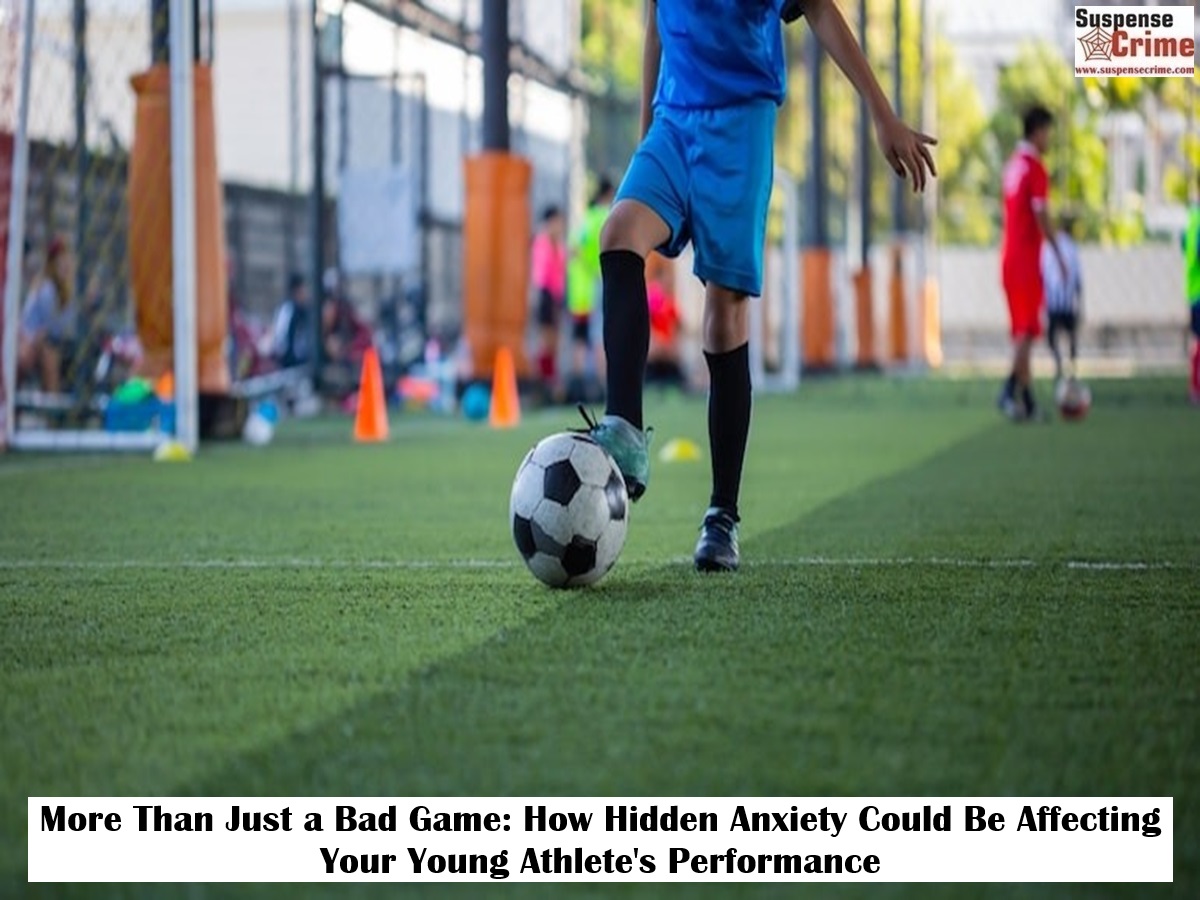
Suspense crime, Digital Desk : As a parent, there’s nothing quite like the pride of watching your child excel at a sport they love. But what happens when their usual passion fades, their performance dips, and they seem to be struggling on the field? It’s easy to attribute it to a lack of focus, a need for more practice, or even laziness. However, the root cause might be something much deeper and often invisible: anxiety.
The pressure on young athletes today is immense. The drive to win, please coaches, and live up to expectations can create a high-stakes environment where the fear of failure overshadows the joy of playing. This performance anxiety can manifest in subtle ways that are frequently missed or misinterpreted by parents and coaches.
Recognizing the signs is the first step toward helping your child navigate these challenges. Here’s a look at the common, yet often overlooked, symptoms of anxiety that could be impacting your child’s athletic journey.
1. The "I Don't Feel Well" Excuse: A Pattern of Physical Complaints
Is your child suddenly complaining of frequent stomachaches, headaches, or muscle pains right before practice or a big game? While any single instance could be genuine, a recurring pattern is a classic red flag for anxiety. The body’s stress response can trigger real physical symptoms. Dismissing these as mere excuses can make your child feel unheard and unsupported.
2. Sudden Avoidance and Excuses
A child who once couldn't wait to get to the field now comes up with endless reasons to skip practice. They might "forget" their gear, claim they have too much homework, or even feign an injury. This avoidance isn't a sign of defiance; it's a coping mechanism. The place that once brought them joy may now be a source of intense stress, and staying away feels like the only way to escape that pressure.
3. On-Field Hesitation and Overthinking
Anxiety directly impacts performance. A once-confident player may suddenly become hesitant, afraid to take risks, or "play it safe." They might overthink every move, leading to mistakes they wouldn't normally make. You may also notice an intense self-criticism after a minor error, a clear sign that they are terrified of messing up. Their mind is so preoccupied with the fear of failure that it sabotages their natural talent.
4. Mood Swings and Irritability Off the Field
Anxiety doesn’t just stay on the field. If your child seems unusually irritable, moody, or withdrawn at home, it could be linked to the pressure they feel in their sport. They might snap over small things or isolate themselves from family and friends. This isn't a bad attitude; it's often a sign that they are struggling to manage overwhelming feelings.
5. Disrupted Sleep and Eating Habits
The stress of performance anxiety can wreak havoc on a child’s fundamental routines. You might notice they have trouble falling asleep the night before a game, wake up from nightmares, or complain of being constantly tired. Similarly, their appetite may change—either eating significantly more as a form of comfort or losing their appetite entirely due to stress.
How Parents Can Help: Fostering a Supportive Environment
If you recognize these signs in your child, your response is crucial.
- Start a Conversation: Choose a calm moment to talk. Ask open-ended questions like, "I've noticed you seem a bit down about soccer lately. How are you feeling about it?" Listen without judgment.
- Focus on Effort, Not the Outcome: Shift your praise from winning to effort, sportsmanship, and resilience. Let them know you are proud of them for trying their best, regardless of the score.
- Reaffirm Unconditional Love: Make it crystal clear that your love and pride are not dependent on their athletic achievements. They need to know they are valued for who they are, not just what they do.
- Seek Professional Guidance: There is no shame in seeking help. A sports psychologist or a child therapist can provide both you and your child with the tools to manage anxiety effectively.
By being an observant and supportive ally, you can help your child rediscover their love for the game and build the mental resilience they need to thrive, both on and off the field.
Read More: The Crimson Secret Why DIY Alta is the Best Choice for Your Skin This Festive Season

 Share
Share



